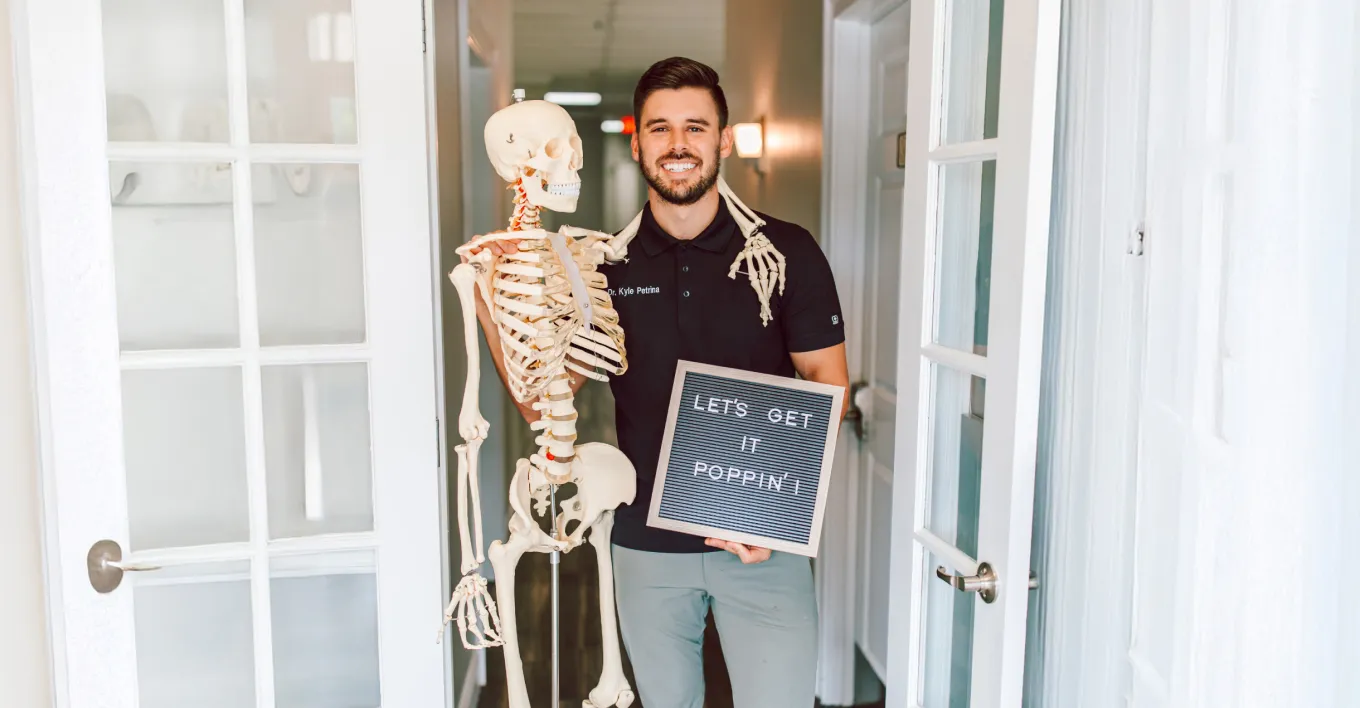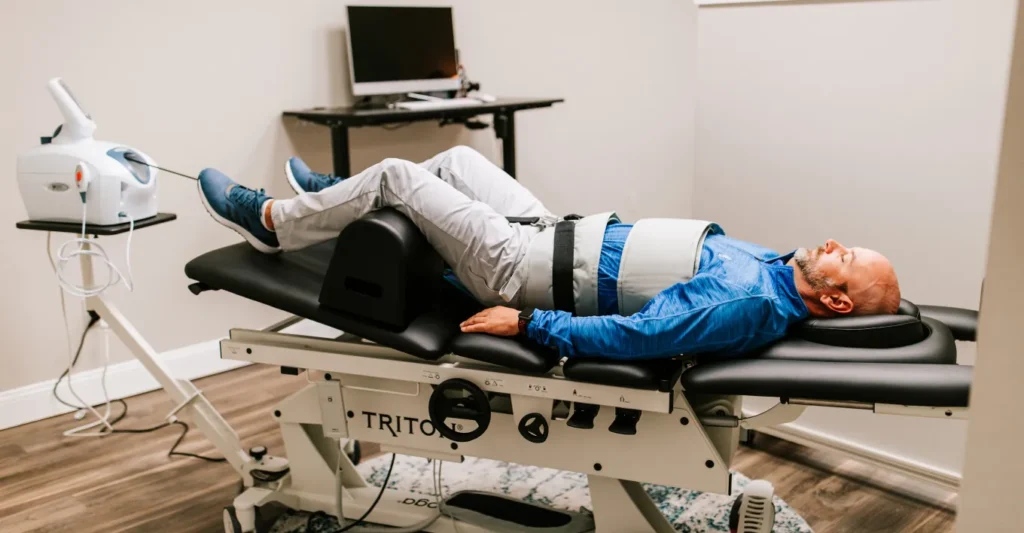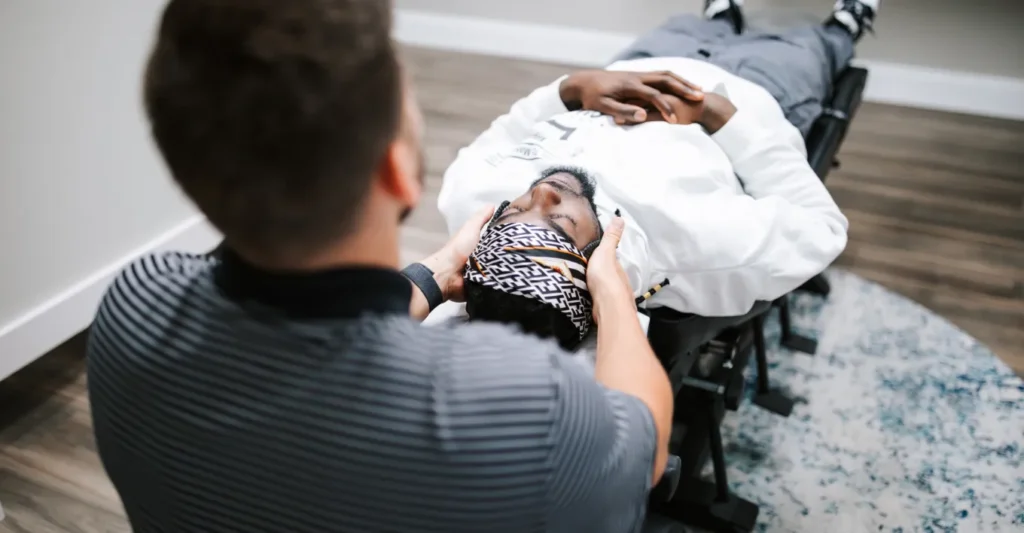As a graduate of Life University, chiropractic philosophy was introduced to me early and often. When I first enrolled in chiropractic school, I intended—like many others—to focus on athletes and sports performance. After all, that’s my chiropractic origin story. Before every youth soccer
game, our team doctor, Dr. Eric Plasker, would set up his table on the sidelines and adjust every single player. Dr. Plasker, a legendary chiropractor, was kind enough to care for our entire team for years.
At the time, I didn’t realize the significance of those two-minute adjustments. It wasn’t until I graduated from Life University in 2019, stepped off the stage, and set off on my chiropractic journey that I understood. My focus shifted from athletes to creating a paradigm shift in my
community—a shift toward natural and holistic health. After four years of chiropractic school, I realized that chiropractic philosophy is a way of life. It goes beyond sports performance or treating athletes. While chiropractic care supports sports performance and recovery, that’s just scratching the surface of its true potential.
Chiropractic’s True Purpose: Restoring Health, Not Treating Symptoms
Plain and simple—chiropractic care is about restoring health, not treating symptoms or diseases. The promise of chiropractic is creating an internal environment that unleashes the body’s natural healing potential. As DD Palmer, the founder of chiropractic, proposed, the root of all disease is the accumulation of physical, chemical, and emotional stressors.
Palmer believed that the body’s natural expression is health. Symptoms, sickness, and disease indicate interference within the nervous system, which controls and coordinates every bodily function. The nervous system is the master system, and any interference blocks the body’s ability to express health. But what causes this interference?
Stress: The Root Cause of Nervous System Interference
In the late 1800s, DD Palmer recognized that stress—whether physical, chemical, or emotional—disrupts the nervous system. This idea was later supported by Hans Selye’s General Adaptation Syndrome, which outlines how the body responds to stress:
- 1. Alarm Stage: The body activates its alert system in response to stress.
- 2. Resistance Stage: The body works to adapt and return to homeostasis.
- 3. Exhaustion Stage: Prolonged stress leads to symptoms or disease as the body becomes overwhelmed.
I like to visualize the nervous system as a cup. Each day, we fill this cup with stressors—physical strain, chemical exposures, and emotional challenges. The problem is, we rarely take time to eliminate these stressors. Over time, the cup becomes full. When we add more stressors, the cup overflows, resulting in symptoms. Symptoms are the body’s way of signaling that something is wrong.
The real question is: What do you do next? Do you address the root cause, or do you cover up the symptoms and hope they don’t return?
The Chiropractic Paradigm: Proactive Health vs. Reactive Medicine
In today’s world, we’ve been conditioned to cover up symptoms. From a young age, many of us are taught to take a pill or medication anytime something feels off. While emergency medicine has its place, medication shouldn’t always be the first solution.
This is where the chiropractic paradigm differs from the medical model. Chiropractic philosophy recognizes that the body is designed to be healthy. Symptoms are simply the body’s way of communicating. The best healer isn’t found in medication—it’s already within you. The chiropractic paradigm and lifestyle help your body heal, adapt, and become more resilient.
A Proactive Approach to Health
This blog only scratches the surface of what chiropractic philosophy entails. Here’s something to consider: What would happen if you focused on being proactive with your health instead of reactive? Would you feel happier? Would you enjoy activities you gave up on years ago? Would your children be healthier? Would your depression lift? Would your anxiety fade?
The possibilities are endless when you align with the philosophy that “Nature needs no help, just no interference” (BJ Palmer). By embracing chiropractic care, you’re choosing a lifestyle that prioritizes proactive health and long-term wellness.



